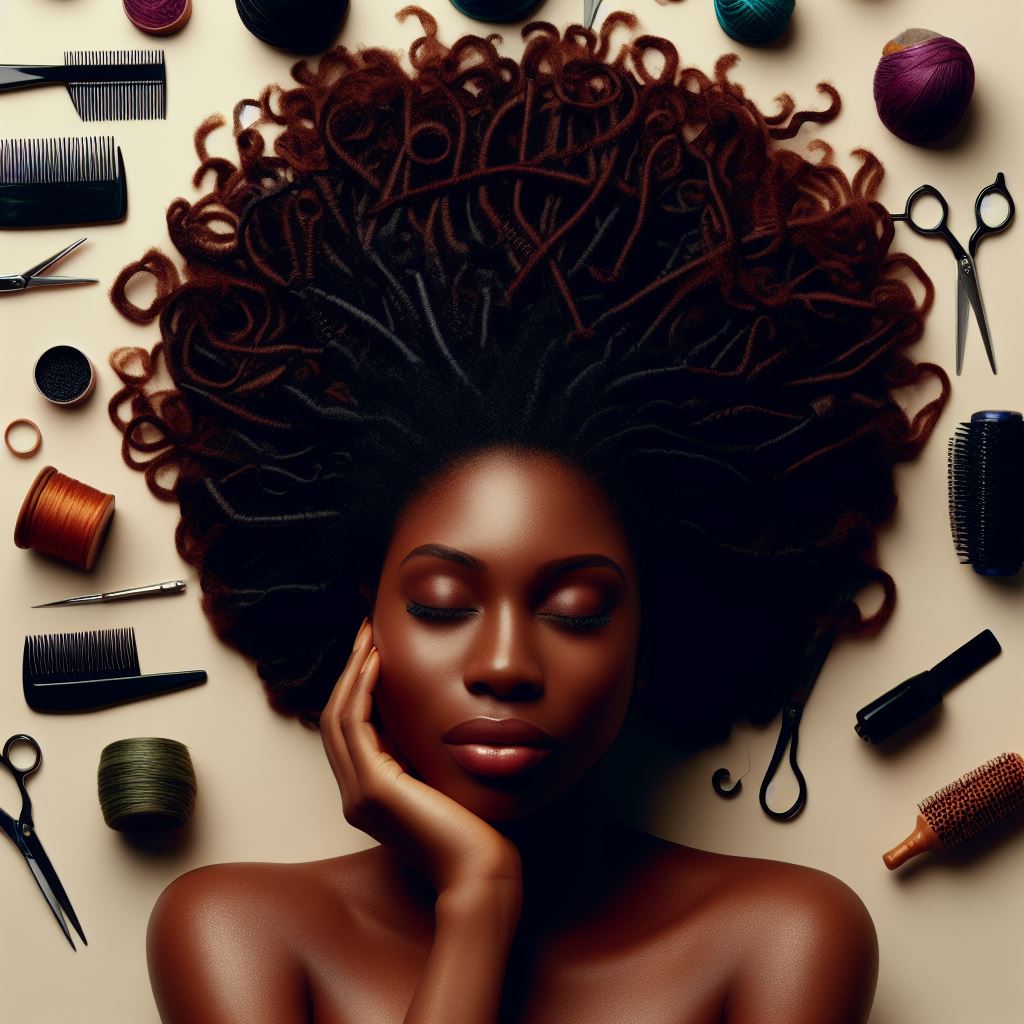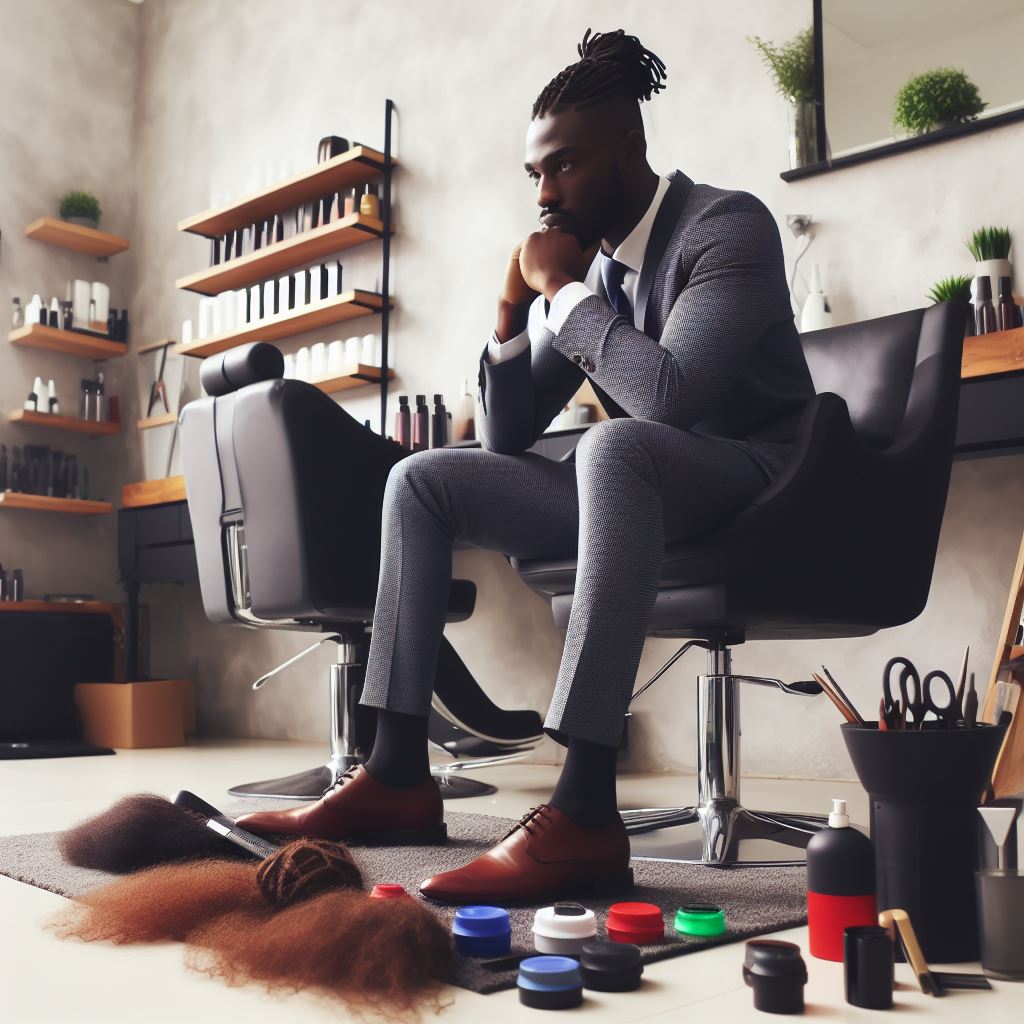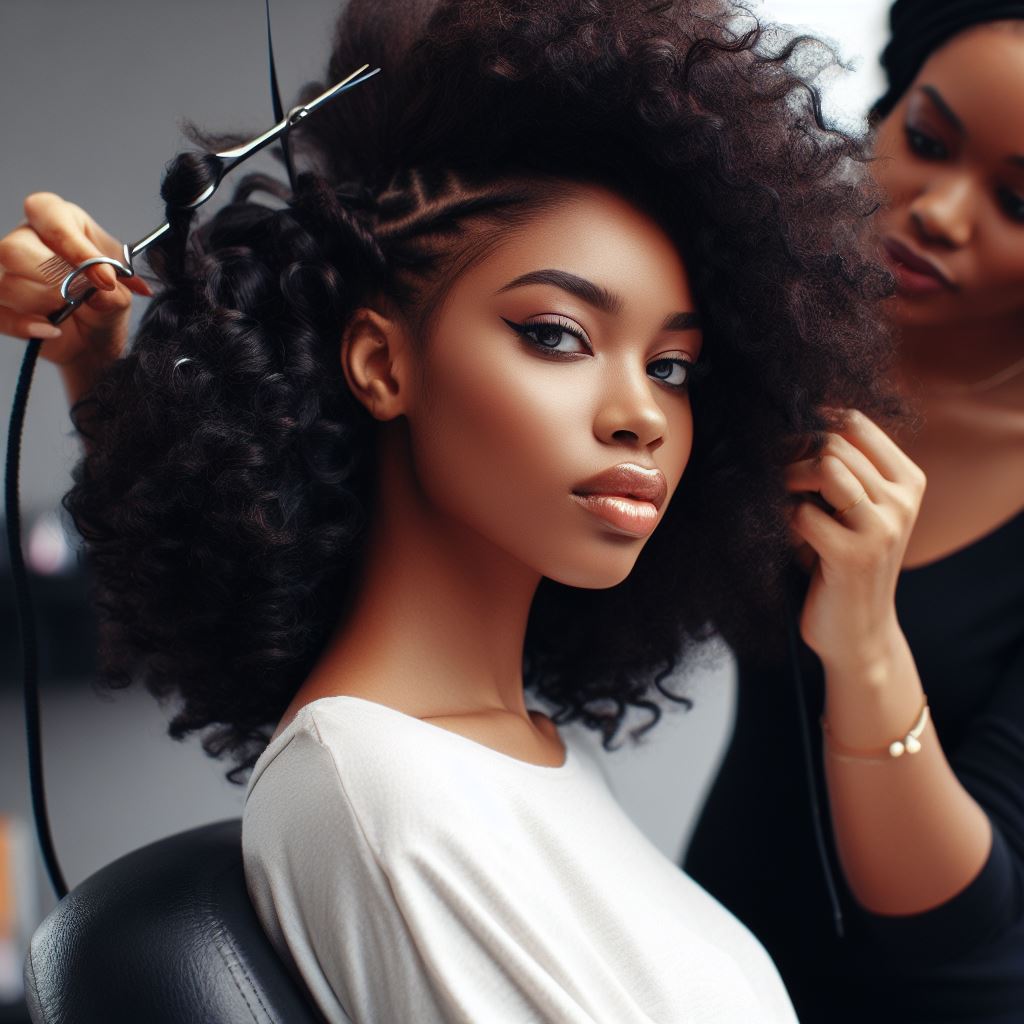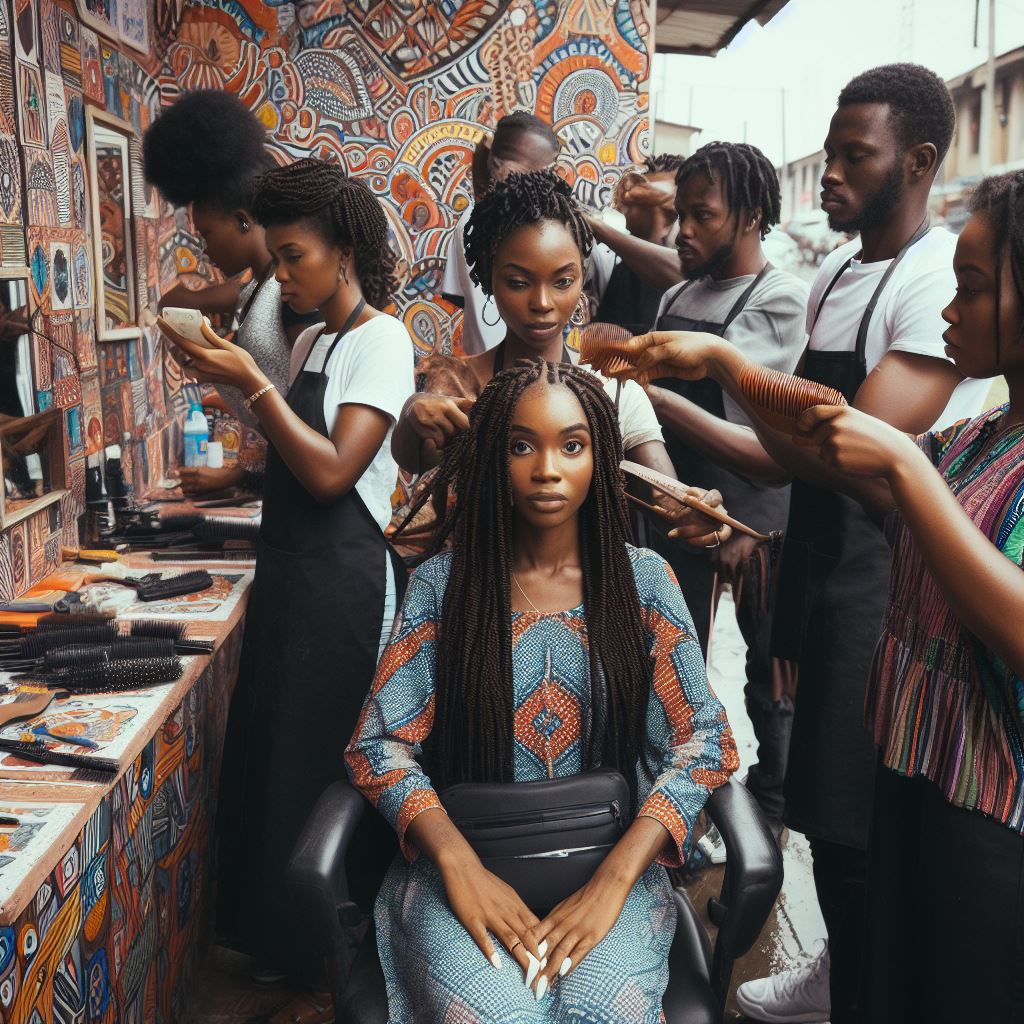Introduction
In the intricate tapestry of personal expression, hair styling emerges as a key brushstroke, defining not just appearance but also bolstering confidence.
Within the vibrant landscape of Nigeria, the realm of hair styling has witnessed a transformative surge in both growth and diversity.
Embarking on the exploration of “Hair Styling Techniques Used in Nigeria,” we delve into a rich tapestry of cultural influences and contemporary trends.
From traditional braiding methods passed down through generations to avant-garde styles that reflect the dynamic spirit of the present, the techniques employed in Nigeria showcase a fusion of heritage and innovation.
This section invites you to witness the artistry that unfolds within the skilled hands of Nigerian stylists, shaping not just strands of hair but narratives of identity and self-assurance.
Join us on this captivating journey through the fascinating world of hair styling, where tradition dances with modernity, and every technique tells a story.
Traditional Hair Styling Techniques
Historical Significance of Traditional Nigerian Hairstyles
Traditional Nigerian hairstyles hold immense historical and cultural significance in the country’s rich heritage. These hairstyles reflect the diverse ethnic groups and their unique traditions.
Popular Traditional Hair Styling Techniques Used Today
In the vibrant tapestry of Nigerian culture, hair styling techniques have played a pivotal role for centuries.
These techniques are more than just a way to adorn one’s hair; they are a testament to the rich heritage and pride of Nigerian men and women.
Let’s delve into the intricate world of Nigerian hair styling.
- Intricate Threading Technique: A centuries-old tradition, threading involves wrapping threads around sections of hair to craft intricate patterns and designs. Beyond aesthetics, it serves practical purposes, protecting the hair and promoting growth.
- Significance of Braiding and Twisting: Braiding, with styles like cornrows and box braids, transcends mere beauty. It’s a form of self-expression and cultural identity, adorned with beads or shells that echo tribal traditions.
- Use of Natural Products: Shea butter, coconut oil, and aloe vera have been trusted for generations to condition and style hair. These natural wonders nourish and strengthen, maintaining the hair’s health.
These techniques are not just about aesthetics; they embody Nigeria’s history and cultural identity, connecting the present to the past. Today, Nigerians proudly embrace these practices, preserving the artistry and heritage of traditional hair styling.
Modern Hair Styling Techniques
Influence of Western Hairstyles on Nigerian Hair Styling
Western hairstyles have greatly influenced Nigerian hair styling, leading to a fusion of cultures and trends.
Popular Modern Hair Styling Techniques Used Today
- Use of Chemical Relaxers for Straightening
- Trend of Using Hair Extensions and Weaves
- Popularity of Wig Styling Techniques
Read: Working as a Freelance Hair Stylist in Nigeria
Hair Styling Tools and Accessories
Discuss the traditional tools used for hair styling in Nigeria
- Wooden combs and brushes have been widely used in Nigeria for centuries.
- These tools are known for their ability to detangle hair without causing damage.
- Wooden combs are also believed to distribute natural oils evenly throughout the hair.
- In addition, wooden brushes are gentle on the scalp and help stimulate blood circulation.
- Styling forks, made of wood or bone, are popular for creating intricate braided hairstyles.
- These forks are used to section the hair and add decorative elements.
- Beads are often incorporated into hairstyles for cultural and aesthetic purposes.
- They are threaded onto the hair strands, creating beautiful patterns and adding vibrancy.
Highlight modern hair styling tools and accessories
- Flat irons and curling wands are commonly used for achieving sleek and curly hairstyles.
- Flat irons straighten the hair with the help of heat and ceramic plates.
- Curling wands, on the other hand, create bouncy curls and waves.
- Hair clips and hairpins are essential tools for securing and styling hair.
- They come in various sizes, designs, and materials to cater to different hairstyles.
- Clips and hairpins are used to hold updos, secure braids, or add decorative elements.
- For example, they can be adorned with beads or other embellishments.
- These modern tools and accessories provide versatility and convenience in hair styling.
Read: Nigeria’s Hair Stylist Unions and Associations
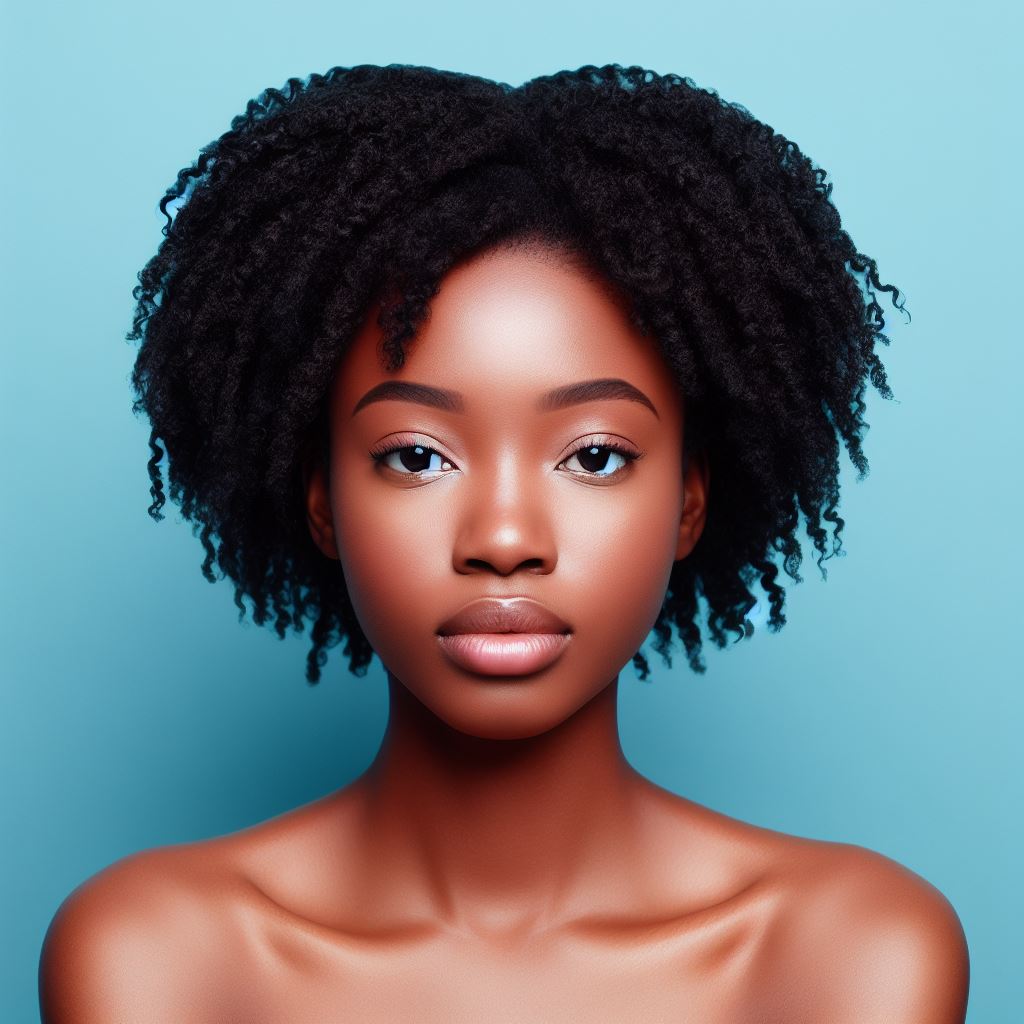
Current Hair Styling Trends in Nigeria
Discuss the influence of social media on hair styling trends
In today’s digital age, social media has revolutionized the way people perceive and experiment with hair styling.
With platforms like Instagram and YouTube, individuals have easy access to a plethora of hairstyles.
Social media influencers and celebrities showcase various hair trends, inspiring people to try new styles.
As a result, the influence of social media on hair styling trends in Nigeria is significant.
Highlight current popular hair styling trends in Nigeria
1. Discuss the preference for natural hairstyles
One prominent hair styling trend in Nigeria is the preference for natural hairstyles.
Many individuals are embracing their natural texture and opting for styles that enhance their curls and coils.
Braids, twists, and locs are popular choices, celebrating the beauty and versatility of natural hair.
Natural hairstyles have become a symbol of identity, empowerment, and cultural pride.
2. Explain the popularity of colored and bold hairstyles
Colored and bold hairstyles have gained immense popularity in Nigeria.
People are getting more experimental with vibrant hair colors, such as blues, purples, and reds.
This trend allows individuals to express their creativity, stand out from the crowd, and make bold fashion statements.
Colored and bold hairstyles have become a symbol of self-expression and individuality.
3. Highlight the trend of incorporating cultural elements into hairstyles
Incorporating cultural elements into hairstyles is another prevalent trend in Nigeria.
People are embracing their cultural heritage by incorporating traditional accessories, patterns, and symbols into their hairstyles.
This trend serves as a way to celebrate and honor Nigerian culture, showcasing a sense of pride and connection to one’s roots.
Furthermore, it promotes cultural diversity and beauty within the hair styling industry.
These current hair styling trends in Nigeria, influenced by social media and cultural pride, offer individuals a wide range of choices to express their unique personalities and embrace their natural beauty.
As the hair industry continues to evolve, these trends are likely to keep evolving and inspiring people across the country.
Read: Hair Styling in Nigeria: A Guide to the Profession
Challenges and Future of Hair Styling in Nigeria
Highlight the challenges faced by hair stylists in Nigeria
- High competition among hair stylists leading to reduced profit margins.
- Limited access to modern styling tools and equipment due to high costs.
- Difficulty in finding skilled and experienced stylists to meet the growing demand.
- Inadequate infrastructure and frequent power outages affecting salon operations.
- Lack of government support in terms of policies and funding for the industry.
Discuss opportunities for growth and innovation in the industry
1. Importance of education and training
Elevating the skills and knowledge of hair stylists through training programs and workshops can enhance their competitiveness.
2. Potential for more sustainable and eco-friendly hair styling techniques
Adopting organic and natural hair products can attract environmentally conscious customers and reduce harm to hair and scalp.
Read: Becoming a Hair Stylist in Nigeria: What to Know
Conclusion
In Nigeria, hair styling techniques showcase the country’s cultural diversity and creativity. From braiding to weaving, Nigerian women have embraced various methods to express their unique styles.
Braids like cornrows and box braids enjoy widespread popularity, attributed to their versatility and durability. Another favored technique is weaving, involving the sewing of synthetic or human hair into the natural hair.
The utilization of extensions and wigs has witnessed a surge in popularity, providing a convenient means for quick and effortless style changes.
In Nigeria, individuals often embellish their hairstyles with intricate beadwork and jewelry, adding a touch of glamour to their look.
The celebration of natural hairstyles is evident, as women embrace their curls, coils, and kinks. The widespread use of shea butter and other natural products for moisturizing and styling highlights a deep appreciation for natural beauty.
Traditional hair styling techniques endure, especially during special occasions and festivals. The practice of hair threading, entailing the wrapping of thread around sections of hair, remains a cherished technique passed down through generations.
Nigerian hair stylists stand out as skilled artisans, consistently demonstrating innovation in their craft. They create new styles to cater to the ever-evolving tastes and preferences of their clientele, contributing to the dynamic and diverse landscape of hairstyling in Nigeria.
They have mastered the art of hair braiding, weaving, and intricate updos, creating beautiful and unique looks for their clients.
In the end, the hair styling techniques used in Nigeria today reflect the country’s rich cultural heritage and diverse population.
From traditional to contemporary styles, Nigerian women have a multitude of options to express their individuality and showcase their beauty.

